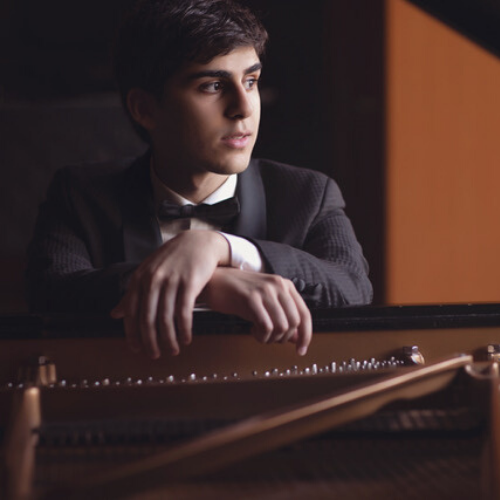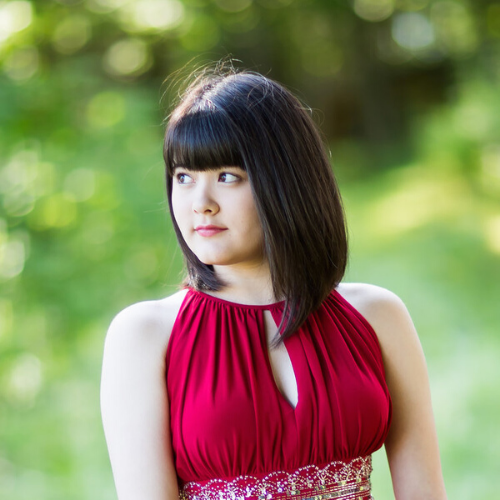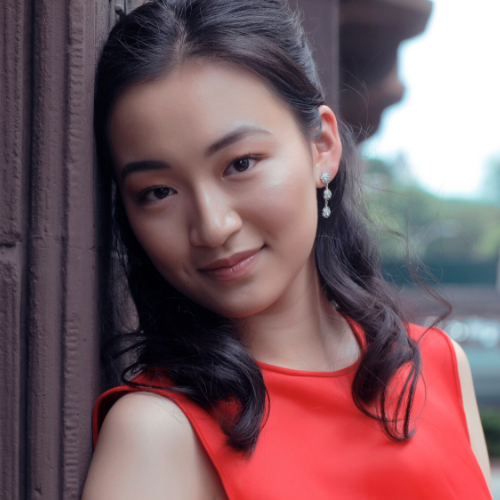Finalists tackle concertos in penultimate round of Chopin Competition

The National Chopin Piano Competition’s final concerto round commenced Saturday night at Miami- Dade County Auditorium with two pianists electing to play Chopin’s Concerto No. 1 in E minor. Evren Ozel, 21 years old from Minneapolis, emerged the stronger interpreter and more technically assured musician.
From his first entrance in the opening Allegro maestoso, Ozel’s classically proportioned approach avoided overt flashiness. He shaped the secondary subject in a sensitively romantic, yet unaffected manner. Throughout the first movement, the rhythmic pulse was strongly felt and Ozel’s variegated dynamics displayed many dimensions of softness.
His eloquent traversal of the Romanze captured the second movement’s bel canto elements, the singing line enhanced by a deft touch. The final Rondo sparkled with syncopation true to the spirit of Polish dance. Ozel’s terse phrasing of the central episode was different from most performances, adding a personal touch to a thoughtful reading. His entire performance brought forth that extra spark of spontaneity and inspiration that distinguishes an exceptionally gifted artist from a solid one.

By contrast, Umi Garrett,19 years old from Orange County, California, gave a more conventional traversal of the concerto. To be sure, there were some impressive moments, especially her whirlwind traversal of the finale which was infused with propulsive vigor. Initially there were some digital slips and Garrett tended to exaggerate details, the first movement emerging diffuse and lacking cohesion. Her entrance was overly bombastic and dramatic while the second movement was too oriented toward the nocturnal side of Chopin.

Chelsea Guo, 19 years old from New York, received the evening’s loudest ovation for her performance of Chopin’s Concerto No. 2 in F minor. Guo was the only pianist among the six finalists to choose the Second Concerto and it was a smart move.
Actually, written before the First Concerto but published later, the Second is more concise and tightly conceived. Guo’s fluently played reading was note perfect. The Larghetto was songful, Guo’s floating line marking her as a fine Chopin stylist. The astutely paced Allegro vivace finale culminated in a rapid-fire coda. Guo avoided the tendency to prettify Chopin. She offered a thoughtful performance, displaying strong musicality that never confused grace with bathos.
Polish conductor Marzena Diakun was a model competition accompanist. She carefully dovetailed each contestant’s phrasing while keeping the musical pulse flowing and vibrant.
In the days when Miami-Dade County Auditorium was the city’s main concert hall, major visiting ensembles sounded undernourished there and the hall’s dull acoustic did no favors to the hardworking students of the University of Miami’s Frost Symphony Orchestra (Frost violin professor Scott Flavin was in the concertmaster’s seat). Despite the muffled sound, the players were admirably precise and well coordinated in the first concerto. The second concerto clearly received less rehearsal time with several horn fluffs and untidy playing, especially in the opening Maestoso.
Part II of the finals and awards presentation of the National Chopin Competition will take place 3 p.m. Sunday at Miami-Dade County Auditorium and will be livestreamed at chopin.org.
Posted in Performances
Leave a Comment
Sun Mar 1, 2020
at 11:21 am
No Comments
